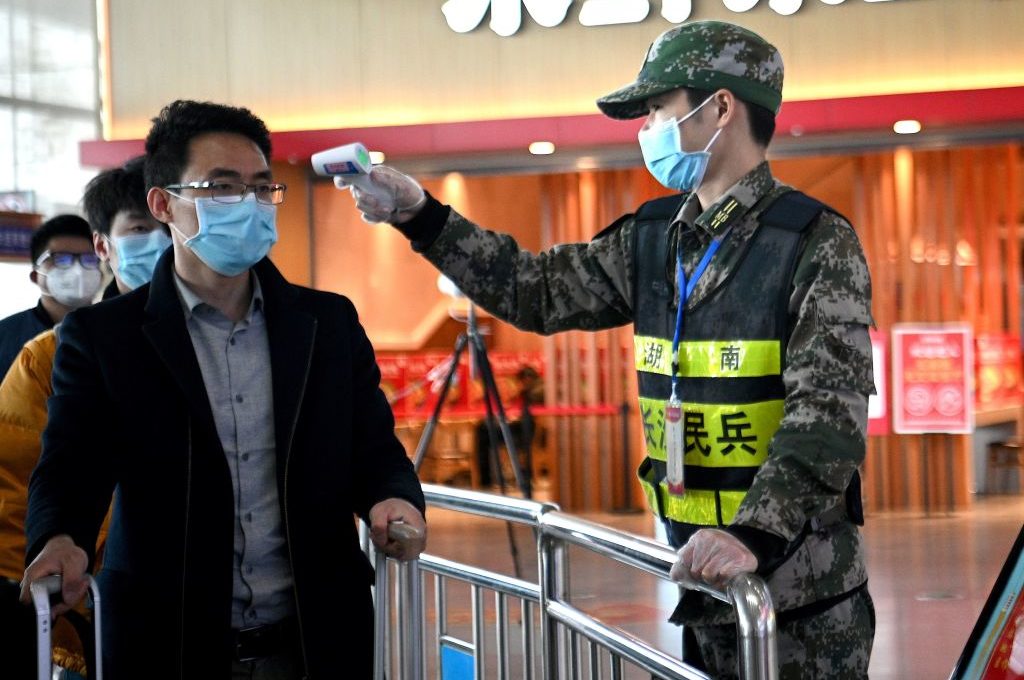I didn’t know this was what they meant by ‘cancel culture’. Sports events, theatre shows, plane flights, weddings, funerals: everyone is in a mad rush to cancel everything. Governments are ordering citizens to remain indoors, with Spanish police even deploying drones to catch miscreants. I don’t know whether it is the best way of tackling coronavirus — the UK government, which has gone to greater lengths than others to explain the scientific modeling behind its decision-making, has come to the conclusion that banning things and forcing the entire population into lockdown will have minimal effect and may even be counter-productive, at least at this stage.
But it is going to cause a global recession, if not depression. Last year, eight percent of US consumer spending was on hotels and restaurants, eight percent was on recreational spending. If people can’t get out because the restaurants, theaters and so on are closed that is an awful lot of money to be taken out of the economy, with millions of jobs at risk.
Why has the global reaction to coronavirus been so very different from that towards swine flu in 2009? Then, as now, it developed into a global pandemic. Then, as now, it began with grim warnings that 40 percent of the population could be ill at the same time. Swine flu is estimated to have gone on to kill between 150,000 and 500,000 people worldwide — coronavirus has so far killed 5,700. Yet in 2009 the planes didn’t stop flying. The theaters and restaurants weren’t closed. People weren’t ordered to stay indoors.
No doubt the rise of social media has played a part in spreading panic and putting pressure on governments to take some kind of action — whatever action — in order to be seen to be doing something. But far bigger than that is the influence of China. Governments are closing down cities and forcing their populations behind closed doors because that is what the Chinese did — and for which the Chinese have claimed success.
This is a huge breakthrough moment for Chinese soft power. It is remarkable because up until now China has wielded remarkably little influence on the West. It has grown to be the world’s second-largest economy without the rest of the world adopting its culture or its ways of thinking. We buy Chinese-made goods (so long as they are to our specification) but we don’t watch Chinese films, play Chinese sport, read Chinese books, adopt Chinese social practices or management techniques and so on. Indeed, the cultural flow has often seemed to be in the other direction.
But coronavirus has provided a huge opportunity for China to exert itself and influence the rest of the world. After a slow start in tackling coronavirus, in the third week of January, China suddenly deployed the full apparatus of the state against disease. The entire city of Wuhan was locked down. Shops closed, transport ceased. People were ordered to stay in their homes — welded in with steel bars according to one report. It was a fascinating medical, social and economic experiment — which caused westerners to look on in horror. It brought home the reality of a totalitarian state.
But here’s the remarkable thing, which very few in the West had contemplated: for now, at least, China’s heavy-handed approach seems to have worked. New infections, which were running at 3,000 a day in China in early February, slowed to a trickle by the end of the month.
Meanwhile, the epicenter of coronavirus spread to Europe, where governments and public authorities were initially less inclined to experiment with drastic controls. Then the virus seemed to run a bit out of control in Italy, which in desperation looked eastwards for inspiration. Since last week the whole country has gone full-Wuhan. Spain and Denmark followed, then France. Now, the act of closing down civil society has spread to US states.
I doubt whether Xi Jinping ever imagined what has happened. But suddenly China, which until a few weeks ago was an economic power but a cultural backwater, has the whole world playing its tune. It is a moment of seismic importance in history. We are all Chinese now.


















